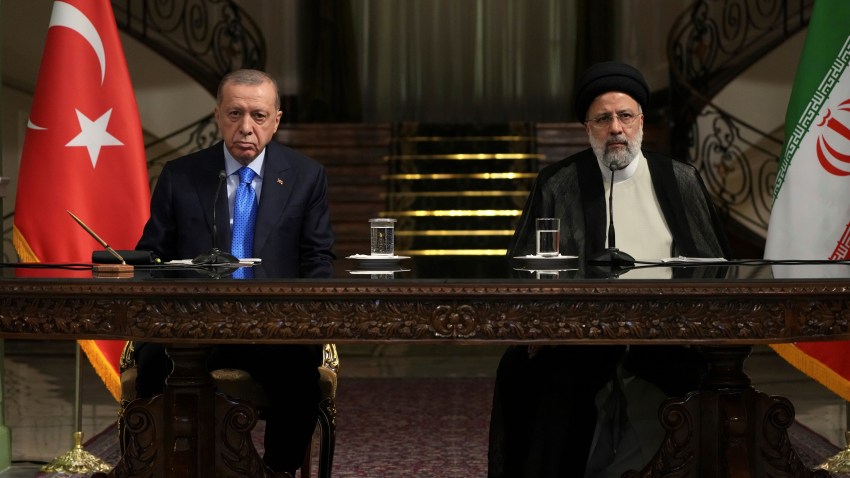Iran and Turkey share a history of deep rivalry spanning back centuries to the medieval age, when they fought a series of expansionist wars in the Middle East. Nowadays their competition is more subtle, but nevertheless covers increasingly more terrain. One such area of discord between the two is the South Caucasus.
If Iran’s moves over the past couple months are any indication, Turkey’s growing influence in the region, especially its alliance with Azerbaijan, has heightened Tehran’s sense of unease. Ankara has substantially increased its position in the South Caucasus following the 2020 Nagorno-Karabakh war between Azerbaijan and Armenia. Turkish-made drones spearheaded Azerbaijan’s battlefield successes, while Turkish military intelligence proved to be similarly decisive. Ankara also trained Azerbaijani soldiers; installed a semi-official presence in the Russian-led peacekeeping mission monitoring the cease-fire in Nagorno-Karabakh; and signed an official treaty of alliance with Baku known as the “Shusha Declaration.”
Greater influence in Azerbaijan provides a gateway for Ankara to extend its reach beyond the Caucasus, toward the Caspian Sea and further into Central Asia, especially Turkmenistan. Turkish President Recep Tayyip Erdogan recently visited Kazakhstan and Uzbekistan, signing new economic cooperation treaties to strengthen ties. Iran now sees the prospect of an arc of Turkey-aligned states emerging as a powerful Turkic alliance along its northern borders.

